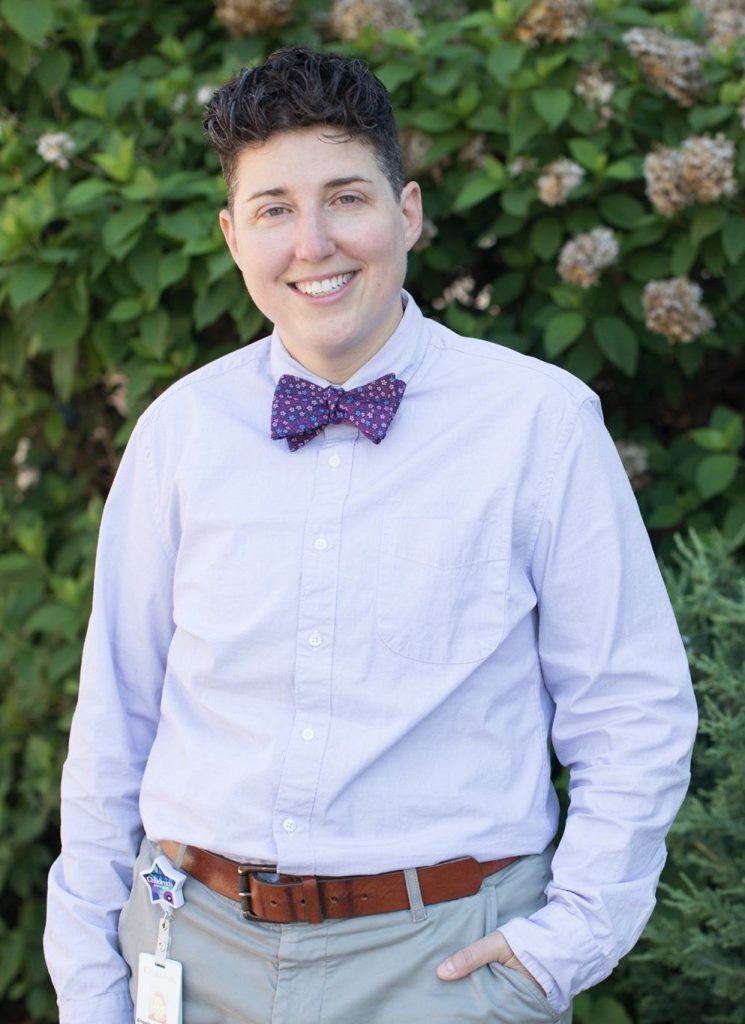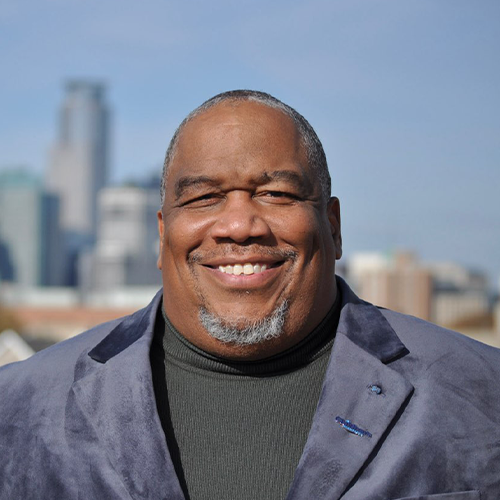

Even “experts” make equity mistakes. The important thing is how we handle them.
Two of our kid experts discuss common mistakes related to different aspects of identity — mistakes they’ve seen others make, and mistakes they’ve made themselves.
Dr. Angela Kade Goepferd (AKG) (they/she) is the chief education officer, chief of staff and medical director of the Gender Health program at Children’s Minnesota.
James Burroughs (JB) (he/him) is the senior vice president of government and community relations, and chief equity and inclusion officer at Children’s Minnesota.
To err is human
AKG: Sometimes others look at people like James and me and think, “They have it figured out.” But I make mistakes just like everyone else. I’ve misgendered people, despite the fact that I work in gender health for a living. That’s just part of being human. The real harm is not being open to learning from your mistakes, not in not making mistakes themselves.
JB: I’ll give you a couple examples — mistakes I’ve made and continue to make. Use of pronouns. I’ve made several mistakes on they/them pronouns with my LGBTQ friends. They give me grace because I’m trying. I have also misidentified someone’s gender based upon sight.
Another mistake I’ve made is in meetings. I’d say “you guys” or “you ladies” or “ladies and gentlemen” and that kind of thing. You don’t need a precursor to describe who’s in the room, but I’m so used to doing those things.
AKG: Right, a lot of times those types of indicators aren’t necessary, even though it’s hard for our brains to get used to it. We can walk into a room and say “Good morning, everybody, let’s get started.” And it might feel weird the first couple times we do it but then we just kind of get used to it.
It’s like they/them pronouns. I explain it to my kids like this: you know when we’re at the grocery store and I tell you to go stand in line behind someone, I say go stand behind “them.” I’m talking about one person, but I’m using “them.” So we do use they/them to refer to singular people. We’re just so used to saying “he and she” that it sounds weird to our brain. And even for me it took a while to use that consistently.
And then I think with regard to sexual identity, it’s very similar. I have been an out, queer person, for a long time. And I still get surprised when someone asks me if I have a husband, rather than asking if I have a significant other or if I’m in a relationship. It’s important that we not leap to conclusions about someone’s identity or experience.
The humble apology
JB: Another assumption people make is just because you’re gay or you’re Black, that you know everything about that particular race or group.
AKG: Like you’re an expert in that culture.
JB: Exactly. I’m an expert in my experience in that culture, but I could tell you some stuff that no other Black person will want to do. But that’s what I want to do. When we identify a person of a certain race, gender, or ability as the spokesperson for all people in that group, that’s another mistake.
AKG: I think that one of the best things you can do when you find out you’ve made a mistake is humbly apologize. A humble apology doesn’t make it about you.
JB: Yeah, don’t use words like, “I’m sorry if it hurt your feelings” or, “if it made you feel bad.” Or say things like, “Well, the last Black person I talked to didn’t feel it was a problem.”
When you make that apology, it can’t show up in an emotional state about you either. I’m not saying that you shouldn’t feel bad about making a mistake, but when you express that in your apology, it takes away from the apology. It makes it about you and your feelings instead of the mistake or the person you may have offended.
That can be hard because some people are emotional. And that’s OK, but that’s for them to figure out later. If you find yourself going down that path, it’s best to step away instead of getting into an emotional discussion that takes away from you being sorry.
AKG: If I walk into a room and I’m talking with James and I say, “Well, you know, ‘the Black community’ and then James says, ‘Hey, I really prefer African American,’” I can just say, “My apologies. I’ll switch to African American. Thanks for letting me know,” and then continue with the discussion. If I say, “Oh my gosh, I’m so sorry. I didn’t mean to offend you. I feel so bad,” and get emotional, then all of a sudden that whole conversation has become about me and my feelings.
Just apologize. Don’t take up a lot of space with your apology.
Do the work
JB: Another thing — don’t continue to make the same mistakes over again.
AKG: Yeah, try to record the mistake somewhere so you can avoid doing it again. It’s kind of like when you’re in a relationship with someone and they say they’re sorry, but then their actions never change. You start to wonder if they’re really sorry at all, or if they just said that to make you feel better.
Another thing that sometimes happens — say someone uses the wrong pronoun. They apologize and then they say something like, “It’s just so hard because I’m not used to doing that and it doesn’t sound right to my brain,” instead of just saying, “I’m sorry. That’s something I need to work on.” When you apologize with a “qualifier” like that, it makes the person you offended feel like they caused you to make the mistake.
JB: It’s OK not to know something. But you can’t stop there. It’s important to ask questions and to keep learning. I always tell my white friends: you want to know more about the Black community? Get more Black friends. You want to know more about the Latino community? Get more Latino friends.
If you don’t have any, you won’t learn anything by reading a book. People just need to do the work.
Note: See Part 2 of this blog to read more about equity mistakes and how to handle them.

Dr. Kade Goepferd, (they/them)
Chief education officer and medical director of the Gender Health program
Dr. Kade Goepferd, (they/them), is the chief education officer, pediatrician and medical director of the Gender Health program at Children’s Minnesota. Dr. Goepferd is an advocate for advancing equitable health care for all children – including trans and gender-diverse youth. They have been named a Top Doctor by both Minneapolis/St. Paul Magazine and Minnesota Monthly for the last several years and gave their first TED talk, “The Revolutionary Truth about Kids and Gender Identity” at TEDx Minneapolis in 2020.
Follow me on Twitter, LinkedIn and Instagram.
